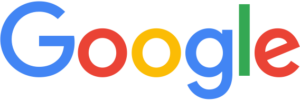 The Professional Ethics Committee for the State Bar of Texas recently opined that a lawyer may use the name of a competing lawyer as a Google AdWord to generate favorable search results. See The Prof’l Ethics Cmte. for the State Bar of Tx., Op. No. 661 (July 2016).
The Professional Ethics Committee for the State Bar of Texas recently opined that a lawyer may use the name of a competing lawyer as a Google AdWord to generate favorable search results. See The Prof’l Ethics Cmte. for the State Bar of Tx., Op. No. 661 (July 2016).
Google’s AdWords advertising program allows Internet advertisers to purchase keywords that result in favorable and highlighted Google search results. In the opinion of the Texas committee, using another lawyer’s name as an AdWord is not “false or misleading” because:
- It does not involve the overt assertion that the advertising lawyer is a partner, shareholder, or associate of the other lawyer.
- A “reasonable person using an internet search engine” would not be misled into thinking that “every search result indicates that a lawyer shown in the list of search results has some type of relationship with the lawyer whose name was used in the search.”
- Because of “the general use by all sorts of businesses of names of competing businesses as keywords in search-engine advertising, such use by Texas lawyers in their advertising is neither dishonest nor fraudulent nor deceitful and does not involve misrepresentation.”
Mixed Signals?
In contrast to this Texas opinion, a grievance committee of the North Carolina State Bar censured North Carolina lawyer David J. Turlington in 2013 for engaging in misleading and “dishonest” advertising. See In re David J. Turlington, III, No. 13G0121, N.C. Grievance Cmte., Wake County (Nov. 18, 2013). His use of other lawyers’ names in a keyword advertising campaign resulted in discipline. Said the committee:
[Y]ou . . . intentionally add[ed] inappropriate keywords to your Google AdWords advertising campaign; your inappropriate keywords consisted of other individual attorney names (including attorney nicknames), names of law firms, and names of judicial officials. . . . Your intentional inclusion of other attorneys’ names and law films in your keyword advertising campaign is dishonest and therefore violates Rule 8.4(c).
In addition, the committee found that Turlington violated Rule 8.1(c) (prohibiting false statement in disciplinary matters) because he lied to the grievance committee in defending against the allegations by contending that his inclusion of inappropriate keywords was “inadvertent” and the result of a “bulk-purchase of keywords suggested by Google.” Id.
Likewise, the North Carolina State Bar Association issued an advisory opinion in 2010 that reached the same conclusion as the committee in Turlington:
It is professional misconduct for a lawyer to engage in conduct involving dishonesty, fraud, deceit, or misrepresentation. Rule 8.4(c). Dishonest conduct includes conduct that shows a lack of fairness or straightforwardness. See In the Matter of Shorter, 570 A.2d 760, 767-68 (DC App. 1990). The intentional purchase of the recognition associated with one lawyer’s name to direct consumers to a competing lawyer’s website is neither fair nor straightforward. Therefore, it is a violation of Rule 8.4(c) for a lawyer to select another lawyer’s name to be used in his own keyword advertising.
What Should Louisiana Lawyers Do?
Louisiana lawyers should avoid this and similar Google AdWords practices. Louisiana Rule 7.2 clearly prohibits a lawyer from making “a false, misleading or deceptive communication” about the lawyer, the lawyer’s services or the lawyer’s firm. Using another lawyer’s name to generate preferential search results is, in my view, an advertising practice that is deceptive and misleading.
